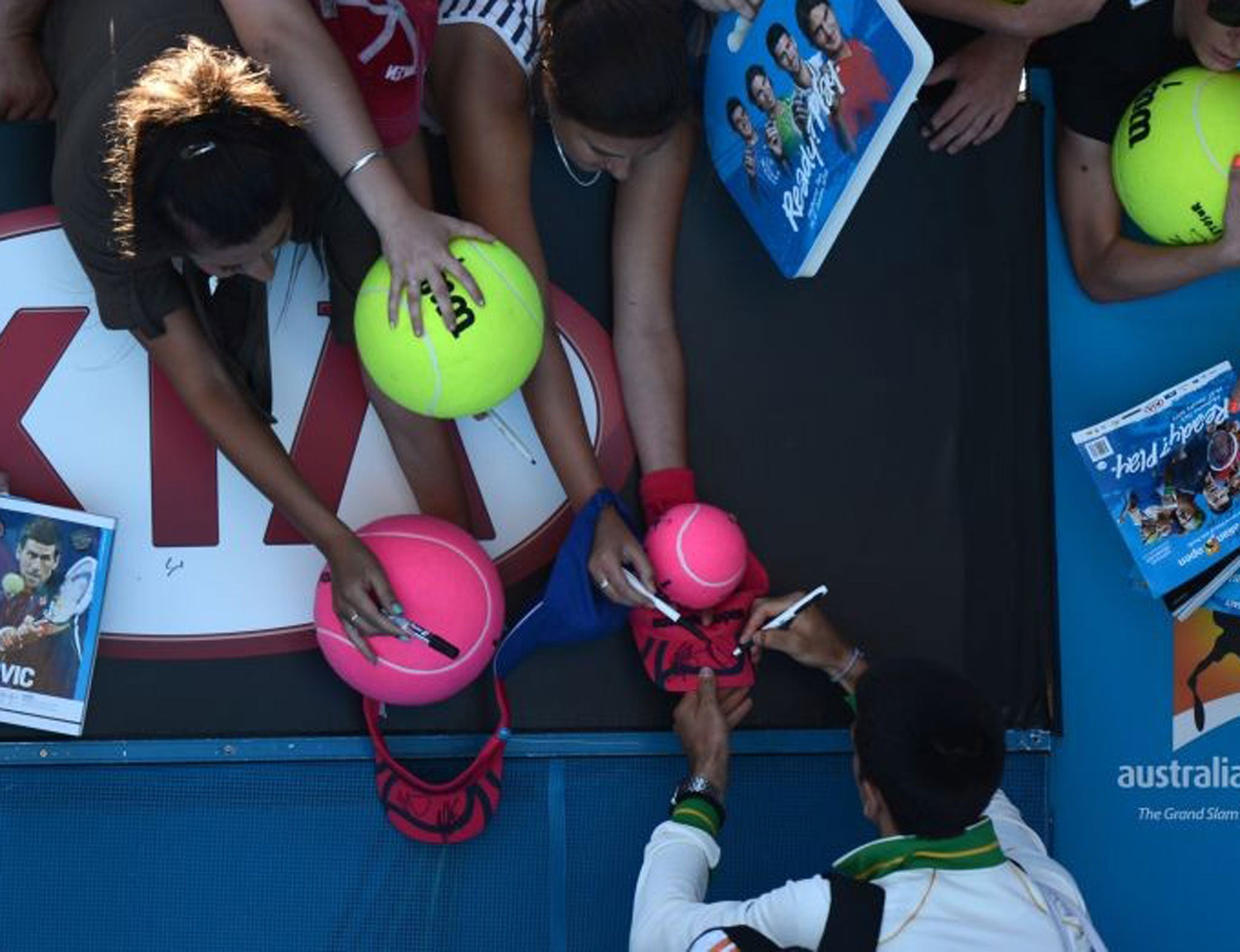Home comforts are hard to find for Australia as only one player from nine goes through

Fans of British tennis, familiar with such experiences at Wimbledon, would have been able to sympathise with the home crowd here on the opening day of the Australian Open. Nine Australians went into battle and only one survived to fight another day, Sam Stosur putting a catalogue of past disappointments behind her to beat Chang Kai-Chen 7-6, 6-3.
Were it not for Bernard Tomic, who faces Argentina’s Leonardo Mayer in his first match tomorrow, Australian men’s tennis in particular would be looking bleaker than at any stage in the last 70 years. Last summer no Australian men reached the second round of Wimbledon for the first time since 1938, an extraordinary turnaround given the extent of their domination in the middle of the last century: in a remarkable run between 1956 and 1970 Australian men won 45 out of 61 Grand Slam singles titles.
Lleyton Hewitt was the last Australian man to claim a Grand Slam singles title – he won the US Open in 2001 and Wimbledon in 2002 – but the years have taken their toll on the former world No 1, even if he has recovered well from his most recent injury lay-off. Some home supporters had been encouraged by his three wins over top 20 players at Kooyong last week, but a Grand Slam tournament is a very different proposition to an exhibition event.
Hewitt did not have the kindest of draws and Janko Tipsarevic, the world No 9, ended the 31-year-old’s 17th successive Australian Open campaign in impressive fashion. Striking the ball with great consistency, Tipsarevic silenced the crowd in Rod Laver Arena, winning 7-6, 7-5, 6-3. “I gave 100 per cent,” Hewitt said afterwards. “I was pretty happy with my ball-striking, just frustrated with the result.”
Matthew Ebden looked to be on the point of providing some home cheer when he won the first two sets against Russia’s Mikhail Youzhny, but the No 23 seed recovered to win 4-6, 6-7, 6-2, 7-6, 6-3. John Millman also went down in five sets, to Japan’s Tatsuma Ito.
Juan Monaco, who was suffering with a leg injury, was the first seed to go out, losing in straight sets to Russia’s Andrey Kuznetsov. Otherwise it was a day when the big names generally coasted. Novak Djokovic, the defending champion and world No 1, showed only occasional glimpses of his best form but was still much too good for France’s Paul-Henri Mathieu, winning 6-2, 6-4, 7-5 to earn a second-round meeting with Ryan Harrison, of the United States.
Join our commenting forum
Join thought-provoking conversations, follow other Independent readers and see their replies
Comments
Bookmark popover
Removed from bookmarks